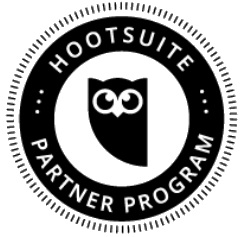Social media can be both a beneficial and dangerous tool for businesses and individuals. While it can help spread your company’s message to the masses, sometimes, it can also share too much or the wrong information and can give users an undesired perception of your company. In addition, today’s increasingly popular digital world has brought with it the danger of hackers (people who gain access to others’ accounts and make unauthorized changes that can be detrimental to a business’s online persona).
In order to help prevent some of these issues, many social media platforms have started to offer improved security options. Many of these can be found on the platform’s “settings” header. These options vary from site to site, however. Below are some of the most noteworthy security settings from each major social network.
Facebook
One of the most popular social networking platforms, Facebook offers many security options to protect one’s page. The platform allows users to “turn off” the ability for people to leave reviews and send direct messages, post comments to the business page, or tag the page in another user’s posts and photos. This helps to prevent the company page from being associated with other users who do not represent the organization.
In addition, comments made on a publicly-shared post can be “hidden” so that only the person who posted the comment and his or her Facebook friends can view it. While there is no way to prevent these comments from being posted, these comments can be deleted by the page admin after they become public.
Another security feature Facebook offers is the ability to set a targeted demographic for a company page’s posts. A business can select a preferred audience for its posts and can restrict the audience who views it.
Twitter
An important thing to note about Twitter’s security settings is that not everyone has to see your tweets. While you can set your account to private — meaning that only your followers will have access to your tweets — you can also declare “approved connections,” naming specific accounts to receive your tweets. These approved connections will have the ability to like, comment, or “retweet” your posts. Twitter also allows users to prevent people from tagging their account in photos and can block other users from sending direct messages to the account. However, one of the greatest security drawbacks is that Twitter does not allow users to prevent their handles from being tagged in other individuals’ tweets.
Instagram
With a focus on photos rather than wordy posts, Instagram is a social media platform that seems to attract more individuals for entertainment rather than for professional use. However, many businesses still utilize the social platform to reach a specific audience.
One of Instagram’s security features favorable to businesses is the ability to turn off comments on specific posts. This feature is used to prevent other users from posting negative comments to a shared post. If you do not want to turn off comments completely to welcome positive posts, Instagram does allow the user to delete other users’ comments on their post. However, like most other social media platforms, these comments can only be deleted after they have already been posted and there is no way to filter out negative comments before they are posted without completely turning off the ability to comment on a post.
Instagram also offers the option for users to make their account “private,” which means that other users must request to follow an account and the owner of that account must approve or deny each request. This feature allows an account to control its audience, but it is used by personal accounts more often than business accounts because it tends to decrease visibility and traffic to a page.
If online interactions become too negative, Instagram also allows users to block other users. Without notifying the other user, the “block” option will prevent the blocked user from viewing your posts and will also prevent you from seeing theirs. You will also no longer appear on each other’s lists of “followers” or “following” and the blocked user will not be able to comment, like, or view your posts or direct message your account. In addition, the blocked user will be unable to find your account in his or her searches.
LinkedIn
When a user creates a LinkedIn account, it comes with many default privacy and security settings that may not be ideal for the business. For this reason, it is important to review your settings to ensure that your account is set up with the privacy and security features you would like. LinkedIn offers the following security options:
- Under the “Privacy” tab of the “Privacy & Settings” header, the social platform allows users to turn off a setting that notifies the user’s network and connections whenever he or she updates the profile. When users make multiple changes to their profiles at once, their networks would likely see every change through their notifications, which could be a nuisance to some people.
- Users can prevent people who they are not connected to from seeing all of their activity while browsing their page. This can be done under the “Blocking and Hiding” header, which allows users to select which connections may or may not follow the account, view the account’s activity, and view public updates.
- LinkedIn has a feature that allows users to see who viewed their profiles. It also allows users the ability to limit the amount of information others see when they view their profile. A user can change these settings to show their complete information, a vague amount of information that hides their name and photo, or simply “LinkedIn Member.”
- The ranking system on LinkedIn can be beneficial to a business or individual, but it can also be harmful. A bad ranking may deter others from taking interest in the user or their company page. However, LinkedIn allows users to exclude themselves from this ranking.
- LinkedIn also allows a user to prevent others from seeing his or her connections and limit which emails he or she receives from the platform and those who may be trying to contact the account member or business.
- The social platform also allows users to hide their photos completely or limit their accessibility to just connections or networks.
Some settings may be better suited for a company’s page than they are for an individual’s page and vice versa. For this reason, it is important for users to understand their audience and the message they would like people to perceive by viewing their profile.
Google My Business
In order to publish a business listing on Google, a business must be verified. This security measure is set up to ensure that whatever information is being posted about the business is being done by a representative of the organization. To verify a business, Google will send the user a verification code to the listed phone number either by call or text — or it can be sent by mail to the business’ address. In addition, these measures help to verify that the business name matches the contact information associated with it. Once an account is verified, the user will have full access to post to the page, upload photos, and engage with their audience.
While Google My Business does not allow individual users to delete negative comments or reviews, it does provide the option of “flagging” an inappropriate or inaccurate review. Once a review is flagged, a Google representative will review the post to see if its contents violate the platform’s policies. However, it is important to note that Google will not remove a review simply because it is negative. To be removed, the review must be in clear violation of Google’s policies. If the Google representative deems the post a violation of one or more of the platform’s policies, it will process the request and remove the post. This process may take several days.










